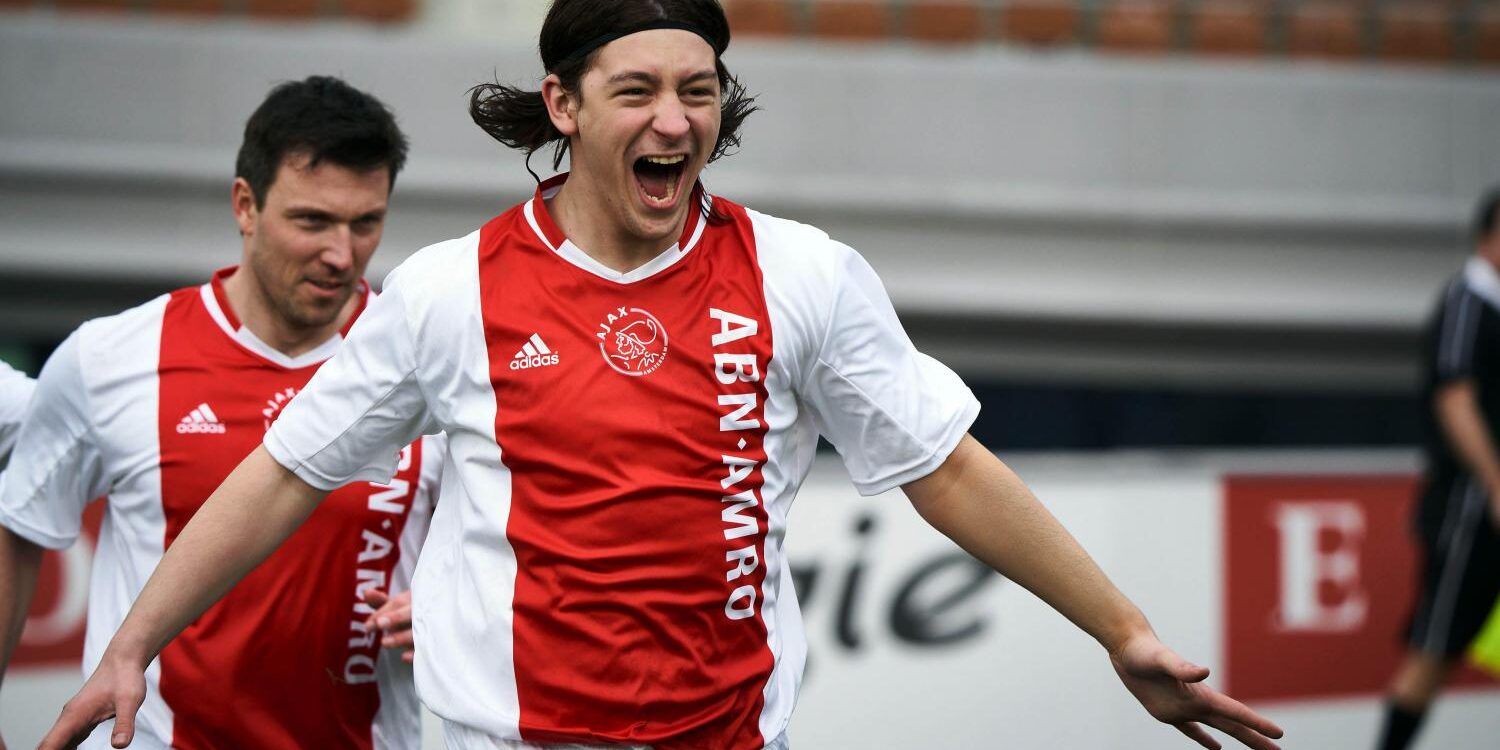In the second part of Duška Radosavljević Krojer’s series documenting her experiences of relocating to Sweden, she embeds herself further in her new community, taking a course of Swedish lessons for immigrants.
I hesitate over referring to my experience as ‘migration’. ‘Relocation’ is possibly more appropriate for someone moving from one Western country to another. For the British the special term ‘ex-pat’ traditionally applies. Particularly, I do not want to diminish what it means to be a ‘migrant’ when you are actually fleeing war, famine and persecution with as much as just the clothes on your back.
Upon my arrival to Sweden, I have been made aware that I am entitled to Swedish for Immigrants (SFI) classes, offered for free by my local municipality. These can be taken in a number of ways depending on one’s circumstances and the desired level of attainment. Most Swedes speak English and much of the business in Sweden is conducted in English too, but the honest truth is that life is considerably easier if one can at least understand the road signs, newspaper headlines, and automated telephone messages.
So after a few weeks of trying to learn Swedish through distance classes and self-study, I settled for a more intensive option offered at my local adult education college. While not so long ago I used to stand on the other side of the lectern, here I am suddenly spending hours each week alongside people whose life experiences span a huge spectrum of migration and relocation causes, and one thing this has taught me is that the experience of migration does not fit neatly under pre-existing labels. Our language skills may be too basic to fully appreciate the nuance of each other’s lives, but just being a *beginner* is a leveller – it puts us all in the same metaphorical boat.
One of the first people I hit it off with on my day 1 was a chirpy twenty-something old Osama, who also volunteered to set up our class’s WhatsApp group. I am actually not sure where he is from exactly, but he already speaks eight Middle Eastern languages, temporarily works for Zara while hoping to eventually become a psychologist and a writer, and has no prospect of ever returning home because there is no acceptance for his homosexual orientation in his original culture, or even within his family.
My classmates also include several refugees from Syria and Afghanistan, in one case a retired gentleman and his twenty-something old son, one of whose brothers, I learnt when we were practising to converse about professions, was an actor in the 2007 film The Kite Runner. We have a beautiful partially veiled Iranian lady – or rather *we had* her as she has already progressed to the higher level thanks to her talent for languages and diligence with homework. She once fed the whole class with a batch of Russian salad she had made at home, but is now busy with raising awareness about the women’s protests in Iran. Then there is Lyubov from Russia, Hanya from Byelorussia, and Ina from Ukraine. I note the presence of these people whose morning routine includes a daily check in with various family members living under incredible strain in their home countries but who nevertheless put on a brave face and a genuine smile for everyone on their way in.
Then there are also several people hailing from various places in Africa, Asia and elsewhere in Europe, mostly tagging along with their job-hopping partners or, as the case may be with the one German in the class, fleeing the particularly tough Covid-19 measures of his country’s government. Oppression and hope for liberation take many different guises, it seems.
‘Why are you doing this?’, asked me a university professor friend of mine back in England, ‘Isn’t there a university Swedish course you can take instead?’ The bitter truth is, I may have come here from London with my own university degrees, love of theatre, and fancy career highlights, but I am in this class partly out of necessity, partly out of curiosity, and also partly out of a genuine solidarity with the experience of the marginalised. So when I try to talk to a new classmate from Kosovo, I am painfully aware of a barrier caused by the fact that he sees me as a Serb. He does not speak English and, even though his parents who might be my age, may have once upon a time been able to at least understand Serbian, for him this is certainly now the language of the enemy oppressor. ‘Znaš ti’/’You know’, he says to me cheekily when I ask him in Swedish if he understands Serbian, and proceeds to share his biscuits with the others at the cafeteria table.
Sometimes I wonder: would I have become a migrant; would I have ever left my native country in the first place had my youth not been disrupted by wars, mistrust, and broken futures some 29 years ago?
Just as I am thinking this, our SFI teacher, Marika – a rock’n’roll-, garden-, and movie-loving, timeless beauty – announces her chosen activity for today. We will be watching a film about a Swedish sportsman, the person who is *the* actual ‘Swedish king’ – footballer Zlatan. ‘He is from a Balkan country’, she says, ‘I’m not sure which, but he grew up in Malmö, and Swedes love him.’ She completes her introduction with a cautionary disclaimer: ‘I have not seen the film so I don’t know if there is any sex in it. I don’t think there will be, but it’s a Swedish film so you never know. If there is any sex in it and you are uncomfortable with it, just cover your eyes’.
It is 9 o’clock in the morning, we are allowed to have our drinks and even breakfast with us as we settle into our adult education college seats for an improvised cinematic experience. As it happens there is no sex in it, but there is some authentic swearing in Serbo-Croatian, which, when translated into Swedish subtitles on screen, makes Marika issue a little, involuntary gasp.
It turns out Jens Sjögren’s 2021 biopic I am Zlatan based on David Lagercrantz bestselling biography of Zlatan Ibrahimović is a great choice of content for an SFI class. One, the dialogue uses English, Bosnian and Italian as well as Swedish, meaning that it offers a number of entry points to speakers of other languages (at one point I hear my Ukrainian classmate sitting next to me whisper along to the dialogue amusedly ‘razumiješ, razumiješ’). Two, it is a film that speaks through action more than dialogue anyway and can therefore maintain attention easily. Three, it is an uplifting story about what it means to be an immigrant: as a rags-to-riches story it focuses on Ibrahimović’s beleaguered childhood in a Malmö ghetto and a subsequent struggle against the odds to get to the top league of players. And finally, it is, as Marika says, a film about the ‘Swedish king’, and therefore, by extension, about the Swedish system of values.
There is a short almost insignificant scene in it that I understand completely differently because I am watching it in Sweden. Young Zlatan’s journey into professional football begins when someone in his Bosnian language class invites him to join the club he is playing for. This incidental detail is probably the key pillar to understanding the Swedish approach to cultural integration. Not only are all immigrants offered Swedish language classes for free but all non-Swedish children in all Swedish schools are also entitled by law to a certain number of weekly classes in their native languages. This is an approach to cultural integration that differs fundamentally from some other contexts where the cultural difference of the immigrants is gradually erased, assimilated, or merely tolerated. Here the immigrant is not only encouraged to nurture their heritage alongside the one of the native population, but they are also led to believe they too can become the ‘Swedish king’ eventually.
I am aware I am writing this in the aftermath of the recent general election which saw the ruling left-wing Social Democrats lose their majority to the right wing populist party the Sweden Democrats. There is real concern that the Swedish approach to immigration has not been so ideal and is at a point of political crisis. However, the social consensus around basic values runs deeper than this, I think, and I will no doubt be thinking more about this as I get deeper into the experience…
Possibly a more narratively pertinent scene for me to single out in this context however is one in which young Zlatan, wild, charismatic, and so talented that he would attract malice and misfortune also shows himself capable of moral decency, generosity of spirit, and remorse towards a rival whom he had injured in the heat of the moment on the pitch.
Bosnian-Swede Zlatan Ibrahimović is incidentally played in Sjögren’s film by two actors of Kosovo Albanian ethnicity. To a Balkan person this erasure of cultural difference may be hard-hitting, but less so once they are truly Swedish. So if I really want to think like a Swede and live like a Swede, I have to be prepared to both be my dazzling self and humbly take one for the team. In this case my team of fellow migrants, wherever they happen to be from.
Main image: Granit Rushiti playing Zlatan Ibrahimovic in I Am Zlatan (Alamy)
Read the first part of Duška Radosavljević Krojer’s Migration Diary: An Improvised Life
Duška Radosavljević Krojer is a writer, dramaturg and academic. She is the author of award-winning academic monograph Theatre-Making: Interplay Between Text and Performance in the 21st Century (2013) and editor of Theatre Criticism: Changing Landscapes (2016) and the Contemporary Ensemble: Interviews with Theatre-Makers (2013). Her work has been funded by the Arts and Humanities Research Council in the UK multiple times including for www.auralia.space (2020-21) and The Mums and Babies Ensemble (2015). She is a regular contributor to The Stage, Exeunt and The Theatre Times.








